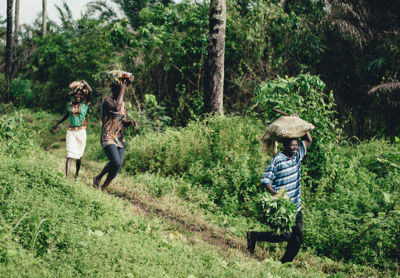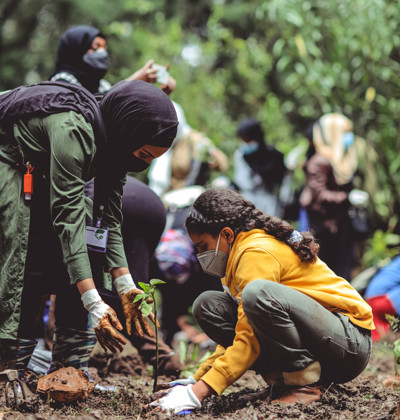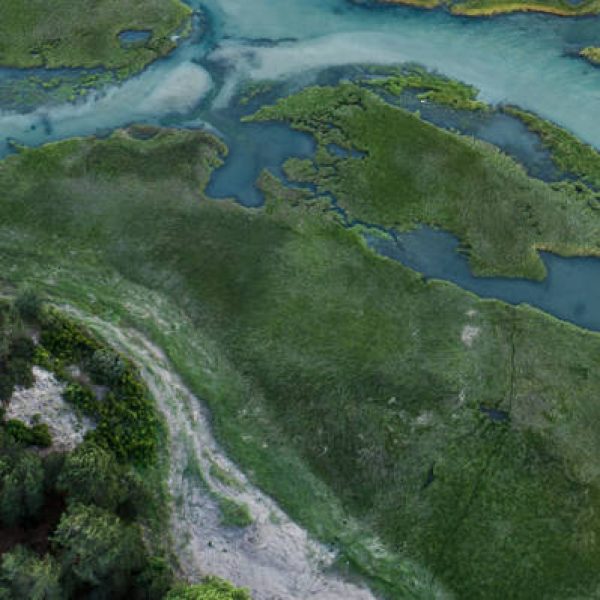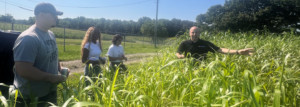As the Creative Advisor to Nature For Justice and not as an experienced environmentalist means that I am well positioned to see where new concepts that are being talked about may need a little unpacking for the rest of us. In order to understand the concepts that Nature For Justice is working with I had to do my own investigating around Nature-Based Solutions and wanted to share that learning here for those also new to this notion:
The enormous potential of the untapped power that nature offers towards protecting human civilization against climate change is something we as humans yet have to wake up to — yet we are waking up to it. It is becoming more and more apparent that it would make far more sense to protect our natural world that is at risk, and calls in to question why nature as a solution to our current climate issues is so under-utilized.
The International Union for the Conservation of Nature (IUCN) has defined Nature-Based Solution as “actions to protect, sustainably manage and restore natural or modified ecosystems that address societal challenges effectively and adaptively, simultaneously providing human well-being and biodiversity benefits.” In other words, using natural ecosystems in a sustainable way to benefit both biodiversity and people – simultaneously.
Natural ecosystems are not only essential for maintaining biodiversity, the production of items and food we need for survival but also save humans money. Research has shown that public coastal wetlands alone prevented $625 million in property damages during Hurricane Sandy and reduced approximately 10 percent of property damages throughout the Northeastern United States. This does not even include the total tallied protection provided (and the billions of dollars saved) that reefs, dune forests and wetlands has offered us on the coastal front. In its essence, nature protects humans as well.
Nature-Based Solutions simply utilize the tools that nature already provides for us that we then have to implement in creative and sustainable ways to ensure that these natural spaces are kept natural. These solutions include actions such as reforestation and afforestation to restore and preserve already degraded and existing forests and woodlands through proper management, particularly by the communities hat exist off or near these ecosystems. Other Nature-Based Solutions include preventing erosion, flooding and degradation of coastal and related aquatic systems. This includes any natural habitat that has yet to be erased along with its local biodiversity.
Some of the long-term benefits from Nature-Based Solutions include improved air and water quality, healthy soil, as well as economic and cultural development. Developed natural areas also play an important role in providing Nature-Based Solutions to the climate issues we face in spaces such as farms, timberlands and the existing and novel development of ecosystems throughout urban spaces such as urban agriculture.

Community involvement is imperative to this process to ensure that Nature-Based Solutions work and remain sustainable. This means that the entire ecosystem is properly supported and involved, including human activities and their reliance from these areas. It is therefor necessary that support in forms of funding, knowledge and expertise are made available to these communities in ways that can insure long term positive growth and with the intention that these communities can eventually become entirely independent from needing any external support.
Nature-Based Solutions not only have the potential to restore, revive and support us in our quest to keep climate change at bay, but to also unlock environmental, social, and economic benefits for communities. For example, benefits for communities can occur through promoting ecological preservation and from that developing small businesses, particularly targeting vulnerable communities who live from these landscapes and ecosystems and helping them and the wildlife around them to flourish. Indigenous knowledge and particularly input from women, who are often the stewards of community, is also imperative for learning and the implementation of Nature-Based Solutions.
In all, both the responsibilities and the solutions to dealing with this looming crisis are already readily available to all of us and now relies on us to tackle the climate change crisis as a global community – to scale – rather than on a small individual basis. Nature For Justice was created as an organization that seeks to scale Nature-Based Solutions by being a bridge between communities and those with the technical and financial assets to address the climate crisis locally and globally.








